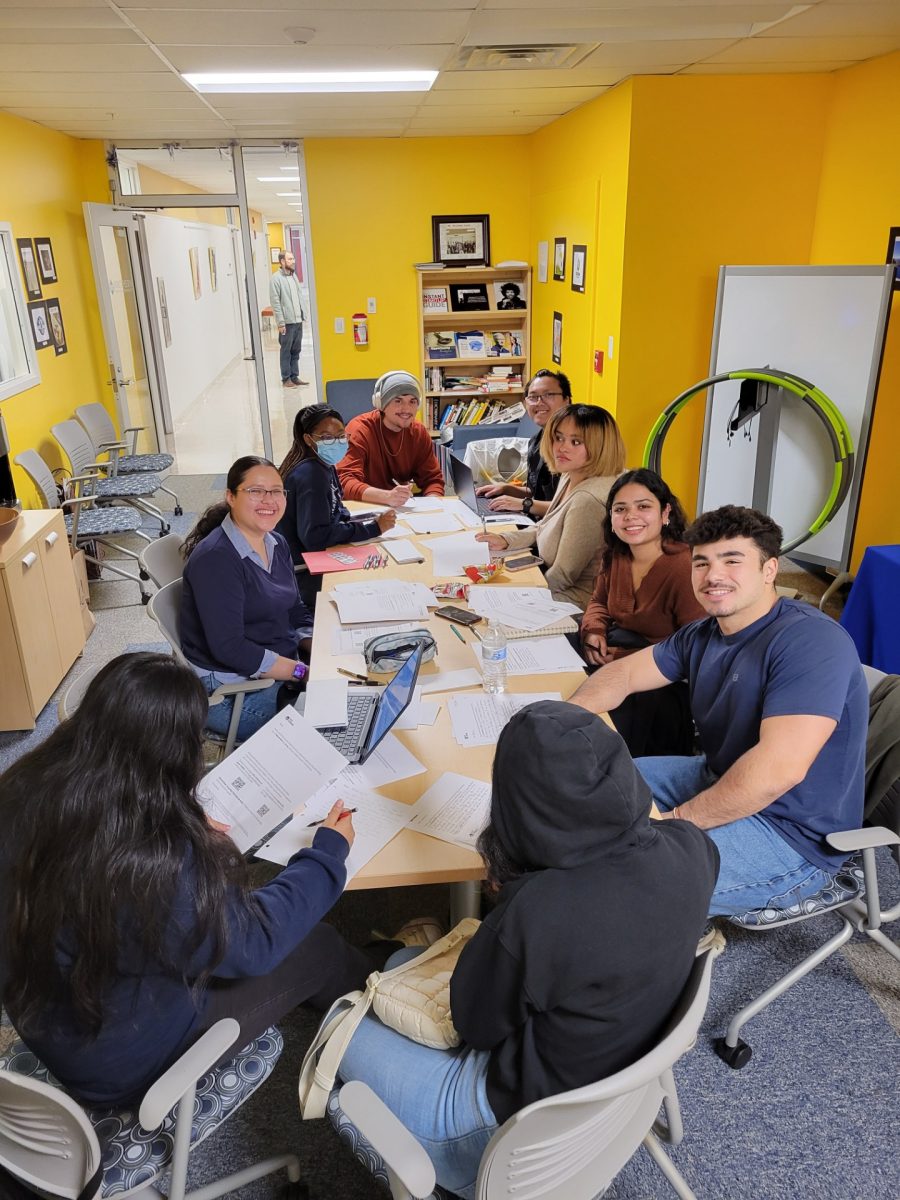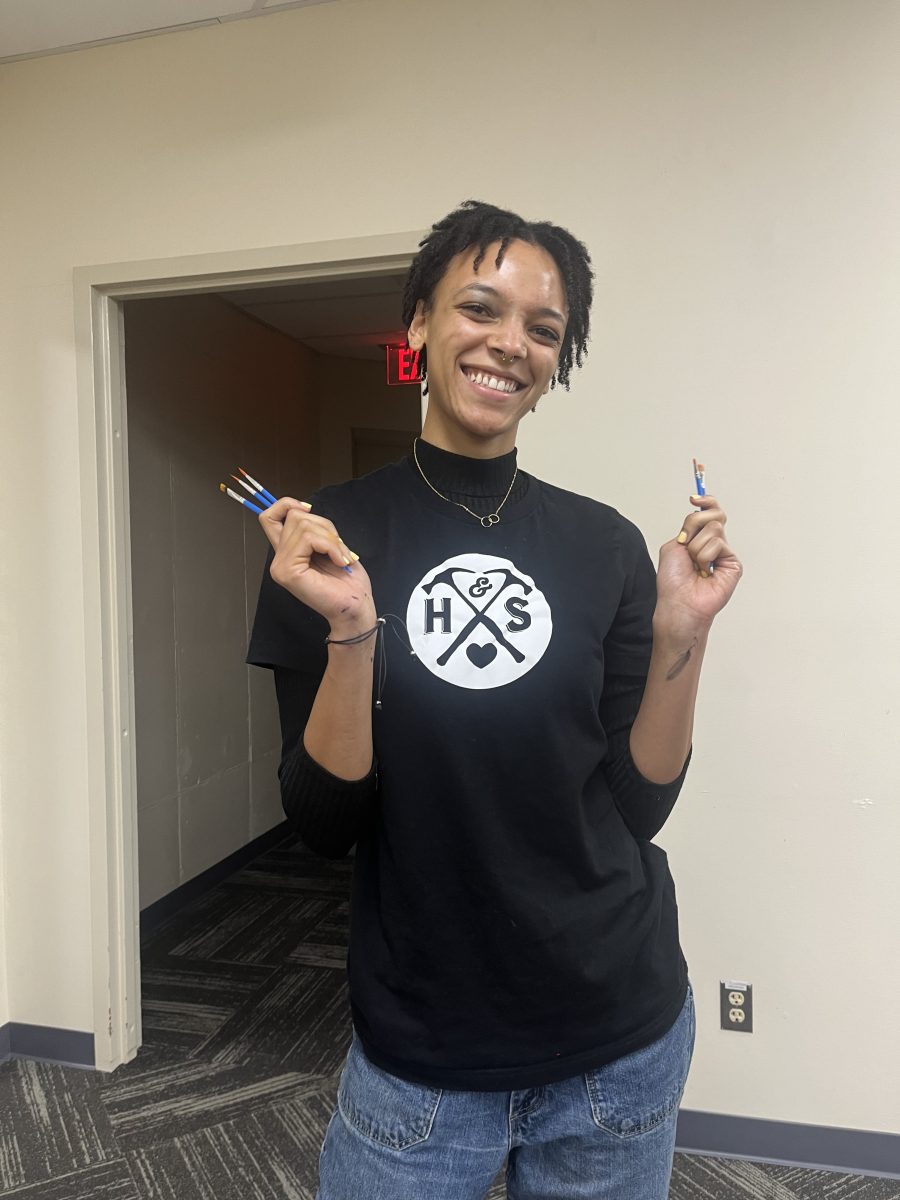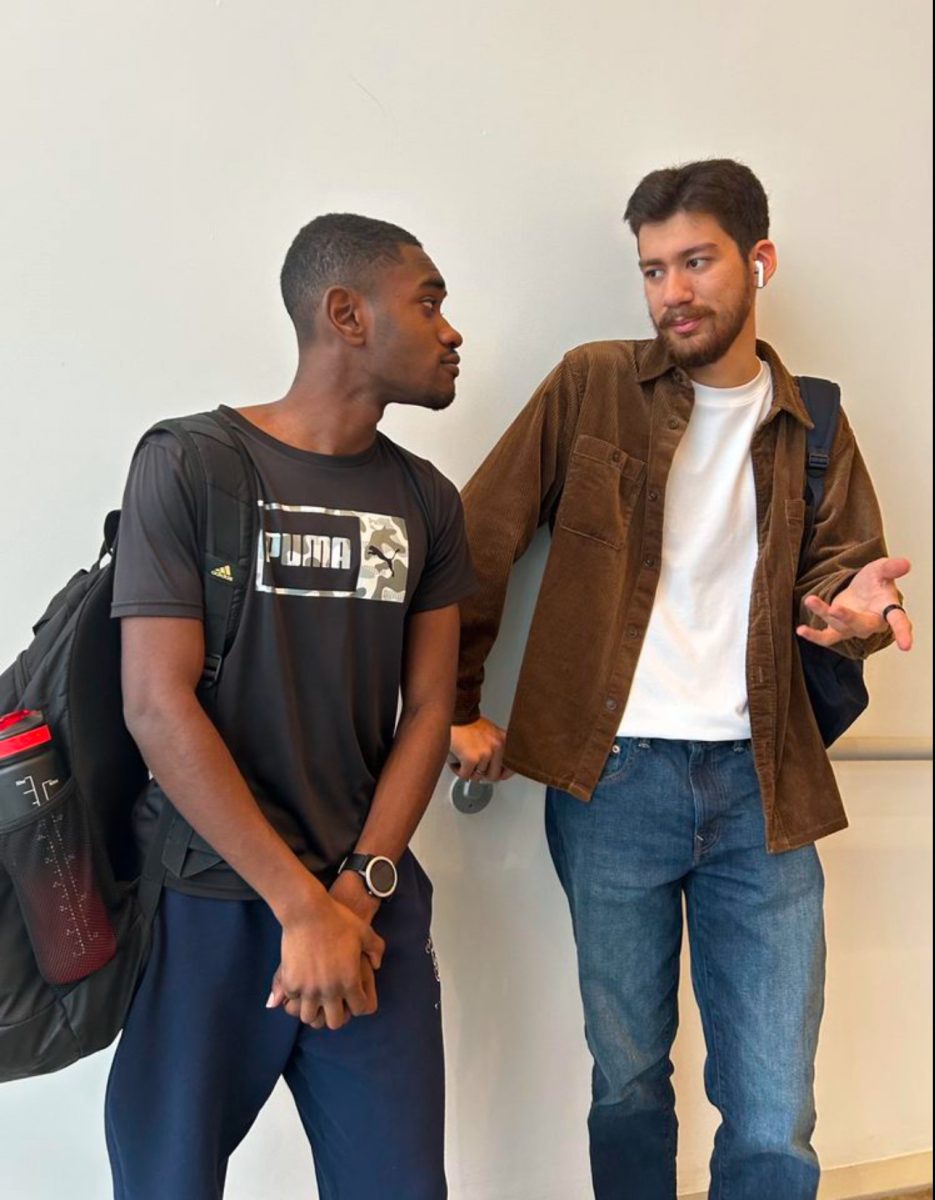“If folks could learn the gaps in math foundation without a professor, wouldn’t we all be math geniuses from YouTube?” said an anonymous student online who had previously taken Math 045/050 classes in past semesters.
“The professors are glorified tutors” “The only way I passed was by getting an outside tutor”
For many, math 045/050 might be their first math class at Montgomery College. Some students who may have been out of school for a couple years may come to be shocked when they see that the math class they are taking is a website-based online course without lectures from a professor. During the summer, I took GED courses with MC which reignited my education in my mid-twenties. The math class I took was an in-person lecture which was very engaging and almost even fun. Students were engaging with each other, the lectures, and the professor. When I started my first semester at MC this spring, I was shocked to see how extremely different the course was compared to my time in GED.
Students take an initial test to figure out their knowledge level and it allows the website ALEKS to determine the path each student must take to pass the class. The class is structured with two to three assignments per week and a test every two weeks. Each class session is 110 minutes long, with students spending that time working on assignments and since the course is self-paced students can advance quickly if they are fast learners. If a student fails to complete assignments in time, it is easy to fall behind in the course as each assignment builds upon each other. What was once a vibrant, jubilant classroom became a quiet, office-like space where everyone was silently working on assignments.
The main issue I have with this course is the lack of collaboration between students. In the GED course, most of us constantly helped one another understand the lectures we had been given. I believe one of the best ways to confirm your knowledge in something is to teach it to someone else. Because the class is held in a computer lab with awkward seating arrangements, it becomes difficult for students to help or receive help from others nearby, especially since the course is self-paced meaning the person next to you could be many steps ahead of you.
I interviewed my current 045/050 Professor for her opinion on the course. Ms. Broussard has been a professor at MC since Sept. 2002. She has been teaching math 045/050 ever since the curriculum was changed to an ALEKS based class. One of my favorite things about Ms. Broussard is that you can tell she clearly cares about her students and wants everybody to pass.
Q: Does the current curriculum benefits students?
A: “In the general scheme of things, it does.” “However, I prefer to lecture and teach students because I can give tips and tricks for students to remember.” “ALEKS has a way of evaluating what you know and continuing to stress what you don’t know.”
Q: Which curriculum (Lectures/Lessons or ALEKS) did you see more student engagement in?
A: “Students who engage with the curriculum by asking questions or looking for help will do so regardless of how the class is being taught.” “The ALEKS curriculum might be better for students who don’t like to speak up in front of people.”
Q: If you could, what changes would you make to the class?
A: “To improve this class, I would need to become more familiar with ALEKS myself, not knowing where each student is makes it difficult for me to find what areas students are struggling with.” “I would also let students make their own formula sheets so they can have some assistance during tests”
I then interviewed Professor Azizi, who runs a Math workshop every Tuesday and Wednesday from 10:30am to 11:30am. I met Azizi at the beginning of the semester, being the only student to attend the Wednesday workshops. The chance to receive one on one tutoring has helped me tremendously in understanding the class material. My favorite lesson Azizi gave me was when she told me that there is never just *one* way of approaching a math problem.
Q: Does the current curriculum benefit students?
A: “In my opinion, it depends on the students. Those with strict schedules who can focus on the class can get the work done before the semester is over.”
Q: Which curriculum did you see more student engagement with?
A: “Lectures allow me to engage with the students more and the students with me.”
Q: If you could, what changes would you make to this class?
A: “I would like students and teachers to build rapport so they can make the outcome of this course more successful.”
Lastly, I also decided to get my classmates and the class of Professor Stephen Wheatley opinions on the course. It was interesting to see how differently some students viewed the class compared to each other. Some students have little to no problems with ALEKS while some would prefer being taught with lectures. A common idea students had when wanting to change this class is that many would prefer Lectures at the start of the class before doing work. I think this solution can work well if implemented correctly. Since every 3 or so assignments correspond to a certain aspect that ALEKS is teaching us, the professor could give a thirty-to-sixty-minute lecture showing students how to approach these problems.
A classmate who stayed anonymous stated that he/she had failed this course once and said that
“Self-paced isn’t the best for someone with ADHD, at least for me” “I learn better when someone is teaching me, and I find lectures easier.”
Elsewhere, Brayden Randolph said
“I enjoy this class, its chill and I can work at my own pace.” “I like lectures/lesson-based learning due to how you can actually be sat down and taught rather than on a computer screen.
Antonia Aschraf chimed in by adding
“I would prefer a lecture/lesson-based course because it provides and facilitates active engagement with the material we learn in class.”
Jazzmin Harrison counters with
“I like that this course is self-paced, enough time is given to complete assignments. ALEKS is fairly easy to use & I like the way its system operates with tests and reviews.” “The system automatically keeps you on track.” “Lectures can be a tad overwhelming because you are absorbing a lot of information at once while taking notes.” “With ALEKS, it’s just you and your computer moving at a pace that’s right for you.”
An anonymous student from Professor Wheatley class further explains
“I have a love/hate relationship with the course only because of how fast paced it is.” “The algorithm is good at tailoring for what you need help with.” “ALEKS provides straight forward steps to solving complex equations.”
Lastly, Salomey Djoboku also from Professors Wheatley’s class said
“I am in the middle when it comes to the enjoyment of this course. Somme of the work is more challenging than others. I do think the percentage required to pass does put a lot of pressure on students.” “ALEKS works just fine simply because everyone is at different learning levels and paces. The course makes it easier to go back and review anything you need at any time.” “I do think ALEKS does make some problems more complicaged than it needs to be.”
After compiling the data from all 21 students, I found the results to be a mixed bag. Eight students preferred ALEKS or had little to no issue with the current curriculum, while another eight students preferred a more traditional lesson-lecture based class. Five students had preferences for both and had no issues with both types of programs.
So, what do you do if you’re a struggling student in your math class? The first thing you should do is ask for help from your professor. As obvious as that may sound, sometimes it a be a bit daunting to get that first step out the way. The first thing I asked my professor was where I can find resources to help me study and practice the material. She pointed me into the direction of the workshops that were being held on Tuesdays and Wednesday. Another resource you can use is the MAPEL center, which not only provides a quiet place to study/work but also has a couple of dedicated tutors available upon request. For me, if I hadn’t asked for help by going to my professor, attending weekly workshops, and by going to the MAPEL center, I would’ve been so lost in my class.
In Retrospect, I believe the current curriculum needs to be changed. Azizi told me that a contributor to the current program is the fact that kids today grow up in a world dominated by technology and while I agree with that, I think a balance between technology and traditional teaching is how we can get the best out of students. Encouraging collaboration between students, building rapport with professors, and having sufficient studying tools can all be keys in improving the passing rate of this class.





















